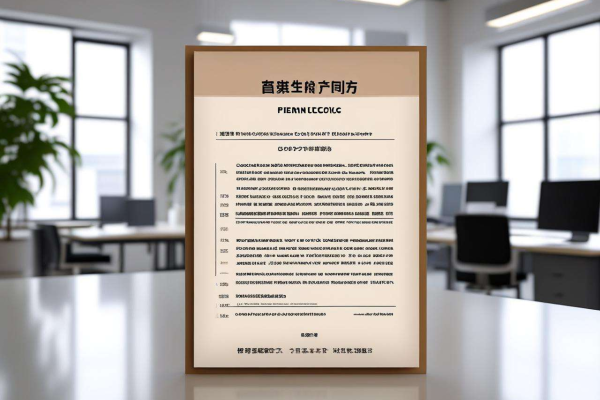Can a contract be without page numbers?
In the realm of contract drafting, the question of whether a contract can be without page numbers often arises. This seemingly simple query holds significance in the legal and business context. A contract is a crucial document that outlines the rights and obligations of the parties involved. While page numbers may not be a mandatory requirement in all cases, their absence can have implications.
On one hand, in some basic contractual agreements with relatively few pages and straightforward content, the omission of page numbers might not cause immediate problems. For example, a simple service agreement between two small local businesses that consists of only a few clauses and a couple of pages may function well without page numbers. The parties can easily refer to the specific paragraphs and clauses as they are clearly demarcated within the text. This simplicity can be cost-effective and time-saving during the drafting process, especially when resources are limited.

However, in more complex contracts, especially those involving large sums of money, extensive negotiations, or multiple parties, the lack of page numbers can lead to confusion. Consider a multi-million-dollar commercial contract that spans dozens of pages. Without page numbers, it becomes a challenge for the parties to quickly and accurately refer to specific provisions. Lawyers and business representatives may have to spend extra time flipping through the document, counting paragraphs, or using bookmarks within digital copies to locate the relevant information. This not only slows down the decision-making process but also increases the risk of overlooking important details.
In a legal dispute, the absence of page numbers can further complicate matters. When presenting evidence or arguing a point based on the contract, it becomes difficult to precisely reference specific passages. Opposing parties may dispute the accuracy of the claimed location within the contract, leading to delays and additional costs in the litigation process. Judges and arbitrators rely on clear and organized documentation to make informed decisions, and page numbers can enhance the clarity and traceability of the contract.
Moreover, from a practical perspective, page numbers can assist in document management and version control. In the event that multiple drafts of the contract are circulated or when amendments are made, page numbers provide a consistent way to track changes. It becomes easier to identify which pages have been updated, added, or removed, ensuring that all parties are on the same page (literally) regarding the current state of the agreement.
In terms of international contracts, different legal systems and business cultures may have varying expectations regarding page numbering. Some regions may consider it a standard practice, while others may not place as much emphasis on it. However, in an increasingly globalized business environment, it is often prudent to follow international best practices to avoid any potential misunderstandings or disputes.
In conclusion, while a contract can technically be written without page numbers, it is generally advisable to include them, especially in more complex agreements. Page numbers enhance clarity, facilitate easy reference, aid in document management, and can prevent potential disputes. By investing a little extra effort in including page numbers, the parties can ensure that the contract serves its intended purpose effectively and stands up to scrutiny in any legal or business context. This simple addition can contribute to a more seamless and reliable contractual relationship, reducing the likelihood of confusion and conflict down the line. Whether it is a domestic or international contract, the inclusion of page numbers is a small but important step towards creating a well-structured and enforceable agreement.





